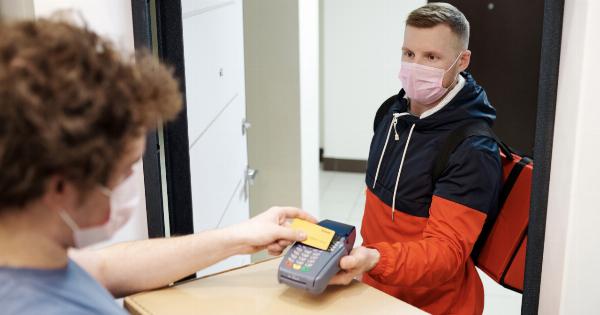With the prevalence of virus infections increasing, it has become essential to take proactive measures to safeguard our health. While some viruses are mild and can be easily treated, others can be severe and even life-threatening.
By following these five easy steps, you can significantly reduce your risk of contracting a virus and protect your overall well-being.
Step 1: Wash your hands frequently
Hand hygiene is one of the simplest yet most effective ways to prevent virus infections. Make it a habit to wash your hands thoroughly with soap and water for at least 20 seconds, especially:.
- Before preparing or eating food
- After using the restroom
- After coughing, sneezing, or blowing your nose
- After touching public surfaces
Additionally, you can use hand sanitizers containing at least 60% alcohol when soap and water are not readily available. Avoid touching your face, especially your eyes, nose, and mouth, as these are potential entry points for viruses.
Step 2: Practice respiratory hygiene
Coughing and sneezing can release respiratory droplets containing viruses into the air, potentially infecting others. By following proper respiratory hygiene, you can minimize the transmission of viruses:.
- Cover your mouth and nose with a tissue or your elbow when coughing or sneezing. Dispose of used tissues immediately.
- If you use a tissue, wash your hands afterward to prevent the spread of any viruses.
- Avoid close contact with individuals who are sick or showing symptoms of respiratory infections.
By being conscious of your coughing and sneezing etiquette, you can protect both yourself and those around you.
Step 3: Enhance your immune system
A strong immune system acts as a natural defense against infections, including viruses. You can boost your immune system through several simple lifestyle choices:.
- Eat a balanced diet rich in fruits, vegetables, whole grains, lean proteins, and healthy fats.
- Engage in regular exercise to improve circulation, increase immunity, and reduce stress levels.
- Get enough quality sleep to allow your body to repair and replenish its immune cells.
- Stay hydrated by drinking ample amounts of water throughout the day.
- Manage stress through relaxation techniques like meditation, yoga, or deep breathing exercises.
By adopting these healthy habits, you can support your immune system’s ability to fight off viruses and stay healthy.
Step 4: Keep your environment clean
Viruses can survive on various surfaces for hours or even days, making it crucial to keep your environment clean and disinfected:.
- Clean frequently-touched surfaces, such as doorknobs, light switches, countertops, and electronic devices, with disinfectant sprays or wipes regularly.
- Wash and disinfect your personal belongings, such as phones and keys, regularly.
- Avoid close contact with individuals who are sick or showing symptoms of respiratory infections.
- Ensure proper ventilation in your home or workspace to promote fresh air circulation.
By maintaining a clean environment, you can minimize the risk of virus transmission and create a safer space for yourself and others.
Step 5: Stay informed and follow guidelines
As information about viruses and their prevention strategies constantly evolve, it is important to stay informed through reliable sources such as the World Health Organization (WHO) or local health authorities.
Follow the guidelines and recommendations provided by these organizations to keep yourself and your community safe:.
- Stay updated on the latest news and developments related to viruses.
- Follow any travel advisories or restrictions issued by health authorities.
- Adhere to vaccination schedules and ensure you are up to date with immunizations.
- Seek medical attention promptly if you develop any symptoms of a viral infection.
By staying informed and following guidelines, you can contribute to the collective effort of preventing virus infections and promoting public health.





























